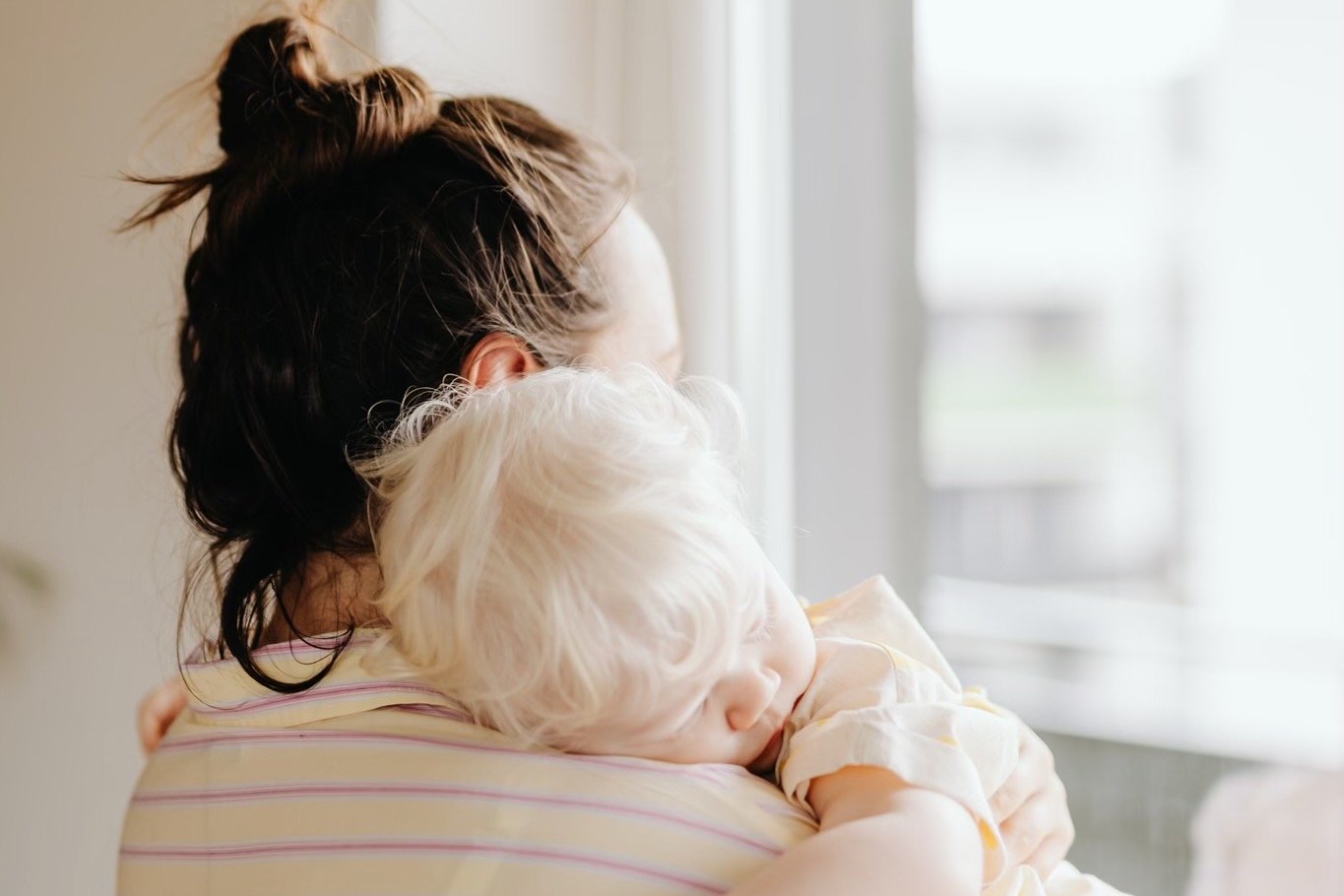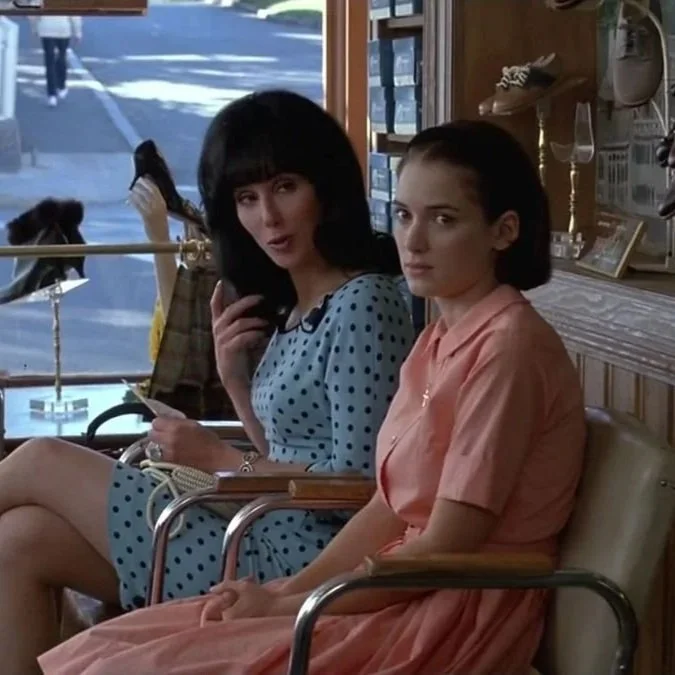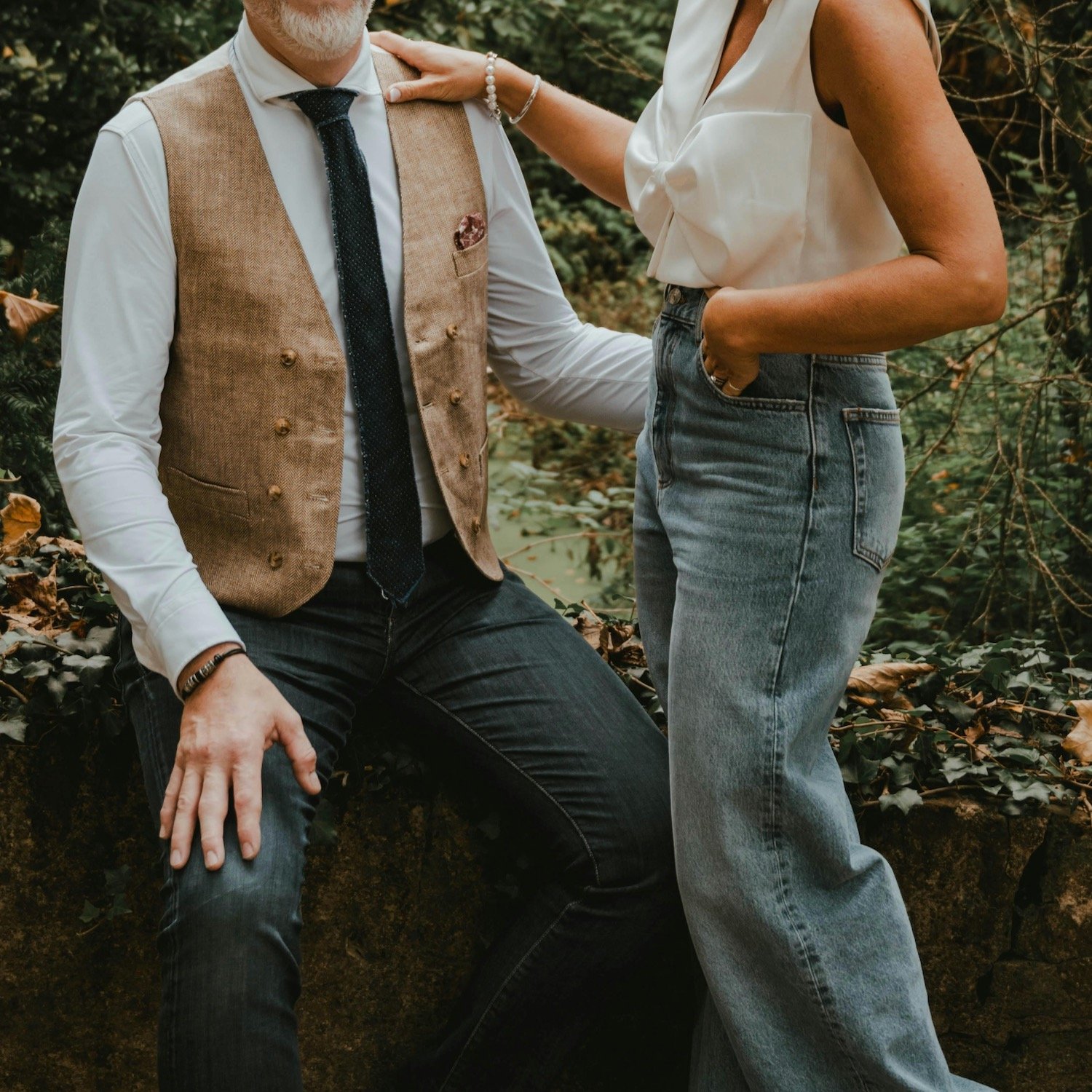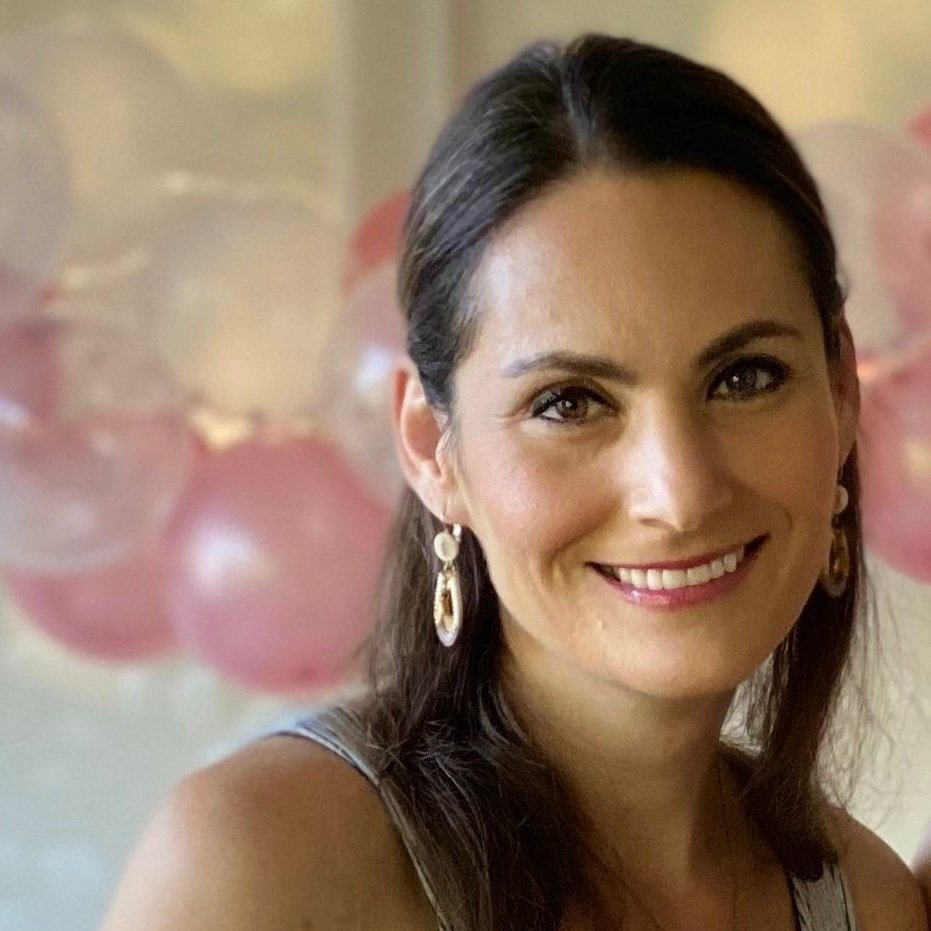5 Things To Do Differently With Your Kids If You Had A Bad Childhood
by Carolyn Firestone
If you ever want to open a treasure trove of insights into how your childhood affects how you parent, start reading about attachment theory.
Without getting too into the weeds, we’ll share one of its most stunning findings:
The number one predictor of our ability to build secure attachment with our kids is NOT the experience we had as kids.
Does this mean we can close the book on our childhoods and go forth into parenting with a carefree and completely clean slate?
Well, no. Sort of the opposite, actually.
While the “biggest” predictor isn’t what happened to us, attachment research shows it’s the degree to which we’ve made sense of and felt the feelings around what happened to us that helps build attachment security in our kids.
So, maybe keep the book open for now. Or better yet, carry it straight into a therapist’s office.
In parenting, our pasts are part of the equation, but they don’t determine the end result. What does is our willingness to be introspective. To keep asking and asking and asking ourselves, “How much of my parenting is about me and how much of it is about my kids?”
Coming from a hard childhood doesn’t doom us to repeat the mistakes of those whose roofs we were under. But every change we make invites a willingness to know ways we were hurt. Which is what makes the transition from being a person with a childhood to a person with a child so much heavier than the pink and blue balloons that set it off suggest.
And it’s also what makes advice around parenting sometimes seem a little… reductive. Which is why we asked therapist Bryana Kappadakunnel, LMFT of the Conscious Mommy, to share the most honest, realistic, self-actualizing steps we can take to not unload all our baggage onto our kids. To do it differently without driving ourselves to impossible standards.
Here are the five things we came away with:
1. Be bold and unapologetic about self-reflection
Many of us have an adverse reaction to verbs that start with self, because they sound inherently… selfish. In reality, our willingness to be introspective is probably the biggest offering we have to the people closest to us, especially the ones we’re raising.
To self-reflect may sound vague, but it’s Kappadakunnel’s “number one piece of advice to parents” for a solid reason. “The majority of the time when we are reacting [or overreacting] to our children, it is because of something unhealed within us.”
That intense pressure to control our kids’ behavior or teach a lesson, to scream because they’re screaming, the desire to flee the scene, the raw sensation of “I cannot take another minute of this!” All the stuff that feels like too much. All of it has a backstory.
Knowing our kids are inevitably going to press buttons, it’s useful to know what those buttons are. Or better yet, what programmed them in the first place. It’s what helps us peel away those ill-fitting, automated responses.
“A lot of times, especially when we have histories of trauma or just generally shitty childhoods, we may not have exact memories of what happened to us, but we will have sensations and feelings that something doesn't feel safe,” said Kappadakunnel. These come up a lot in interactions with our kids, and they’re not always going to make sense to us.
Learning to self-reflect can simply mean stopping ourselves in that moment when we’re heated or confused and asking ourselves:
“Why am I reacting like this?”
“Is a memory attached to this?”
“Is there a feeling attached to what I'm experiencing right now?”
2) Get detective-level good at noticing your reactions.
As much as mindfulness has become a bit of a buzzword, it remains a pretty powerful tool for calming down and staying present - two things that we are forced to do on repeat from the moment we have kids. AND two things that are exceptionally hard when waves of unresolved emotions are crashing down on our ability to think.
The basic idea, according to Kappadakunnel, is to be tuned in to any physiological or emotional stuff that’s coming up. In moments of stress, she suggests parents pay attention to simple things like:
“My fists are balling up when I sense that my child isn't listening to me for the tenth time this past five minutes… Can I make them light?”
“There’s tension rising in my body. Can I let that go?”
“Am I wearing my shoulders as earrings? Can I bring them down?”
Being curious about our responses can give us clues into an almost parallel universe we experience internally as parents. Rather than be ashamed, she suggests just being aware.
3) Set your own crap aside, and see things through your kids’ eyes.
Once we get “a good handle” on how we’re filtering a difficult situation through our own foggy lens, it opens the door to see the situation from our child’s perspective.
There are three incredibly straight-forward questions Kappadakunnel suggests we ask:
“What is my kid thinking?”
“What might they be feeling?”
“What is it that they might be needing?”
“Thinking, feeling, and needing are usually what I ask parents to respond to as opposed to, here's what my kid is doing. We get stuck really on the behaviors,” said Kappadakunnel. “We forget that behavior is their way of showing us, ‘I need you. I need help from you. I need your support.’”
Naturally, this can be a challenge to people who come from a childhood where they didn't get help or support and instead “were blamed for having typically developmental problems” like throwing tantrums, “being defiant,” or “talking back.”
Yet, our sheer interest and effort to understand whatever is going on for our kids is a huge point of differentiation from the dismissed ways many of us felt growing up. “Just like we needed somebody to help us make sense of what is happening inside of us, we have to help the kids make sense of what's happening inside of them,” said Kappadakunnel.
4) Forget punishment. Forget control. Try boundaries instead.
Setting boundaries is a basic way to cultivate balance and respect around a parent and child’s inherent autonomy. But what even is a boundary when applied to a human who has literally been clinging, climbing, coughing on, and cuddling us since the day they appeared on this planet?
According to Kappadakunnel, boundaries are essentially just limits parents create that factor in what our kids need and feel. Unlike discipline or imposed consequences, which are used to “teach a lesson but are usually unrelated” to the behavior (i.e. “you didn't finish your dinner, so I'm taking the iPad away”), boundaries are direct and aren’t built on a model of punishment.
“A boundary with food, for example, is, ‘I get to choose what you eat. When you eat, where you eat. You get to decide how much and whether,” said Kappadakunnel.
Parent’s Boundaries: When setting a boundary, Kappadakunnel encourages parents to keep asking themselves, “Is this necessary?” in order to separate out rules and restrictions that have more to do with them or their own need to control than the well-being of their kids.
Child’s Boundaries: When a child sets a boundary, parents can ask, “Does this boundary make sense? Does it jeopardize their physical safety and health?” If not, is there any logical reason not to honor it?
Sweet as they sound, boundaries can be “exceptionally difficult” for parents “who didn't have an adult present that, in a safe way, honored [their] boundary needs as a child.” People who grew up in homes where they felt like they had to be the parent, because boundaries were enmeshed or nonexistent, can struggle to “have any boundaries with their kids.”
On the flip side, people who grew up in homes that were “overly strict” and “cold,” where they “didn't really get an opportunity to say no to an adult,” can go on to feel excessively authoritative as parents.
In either case, the ongoing dance of respecting a child’s boundaries and establishing our own can be “one of the most healing things” for parents, said Kappadakunnel. “It will allow your homes to be more peaceful. It will allow them to feel slower. Will it create a perfect home where your kid never has outbursts? No, I have not found the secret to that, and I don't believe it exists.”
5) Be willing to collaborate with your kids.
Parenting can seem like a natural place for a power dynamic to exist. I mean, who else is going to teach our kids not to run in the middle of the street? However, the whole way we establish rule over our kids isn’t something we should just take at face value.
“Most of us were deeply conditioned to be in complete acceptance of whatever authority figure was in our lives” said Kappadakunnel. To decondition ourselves, she suggests parents strive for collaboration over control or seeking compliance.
This involves doing things like letting our kids know we’re setting a 5-minute timer to leave the park, so they use their own time to play and prepare. It can mean letting them know, “You are in charge of your schoolwork. I am going to encourage and remind you to do it. And then it's up to you to do it” as opposed to entering into power struggles.
It may be easy for parents to overlook or rationalize their need to control, because naturally, they have concerns about their child’s behavior and future. However, focusing more on collaboration can help them parse out the aspects of their expectations or demands that have more to do with them than with their kids.
Of course, no parent can expect to ignore all their controlling impulses or shed every bad instinct we have. Which is why Kappadakunnel’s bonus bit of advice for such moments is to give ourselves a break. “We're not just flipping out on our kids to flip out on them. There's reason for it. Get curious about the meaning instead of being hard on yourself. Be full of grace instead of full of guilt.”
carolyn firestone
Carolyn is a freelance writer and editor. Her favorite thing to do is to write about her favorite things, especially when they have even the slightest chance of making someone else’s something (mood, relationship, travel plans, or toiletry kit) a little better. You can find more of her articles here.
This article is for informational purposes only. It is not intended to be used in place of professional advice, medical treatment, or professional care in any way. This article is not intended to be and should not be a substitute for professional care, advice or treatment. Please consult with your physician or healthcare provider before changing any health regimen. This article is not intended to diagnose, treat, or prevent disease of any kind. Read our Terms & Conditions and Privacy Policy.









